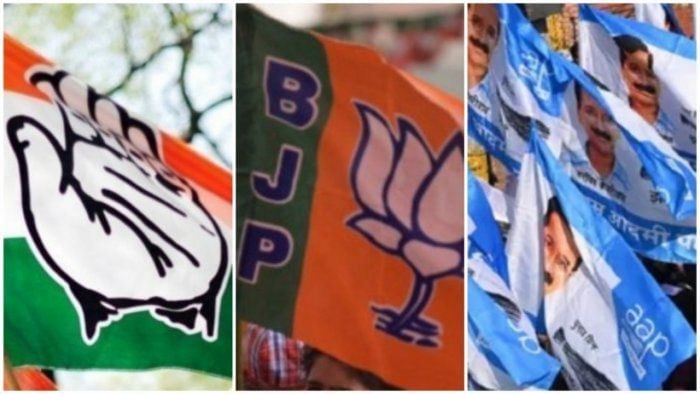
Amid allegations of political impropriety, sales of election tickets and political pandering, the Municipal Corporation of Delhi (MCD) is set to go to the polls on Dec. 4, with the BJP, the Congress and the Aam Aadmi Party (AAP) attempting to gain control of Delhi's civic body.
This is the corporation's first election after the Centre merged the national capital's three municipal bodies - the North Delhi Municipal Corporation, the South Delhi Municipal Corporation and the East Delhi Municipal Corporation - into one body in May this year. So, why are these polls important?
With an estimated 1.1 crore people living under its jurisdiction, the MCD is among the largest civic bodies in the world. It comes second after the Tokyo Metropolitan Government, which oversees an estimated 1.4 crore people in Tokyo's villages, towns, cities and special wards.
The earlier triumvirate of the North, South and East Municipal Corporations had a combined 272 seats. However, the Delhi Municipal Corporation (Amendment) Act, 2022, which merged them into the MCD, reduced the maximum number of seats to 250.
The functions of the MCD
The MCD's primary functions are the same as those of other corporations across the country. It runs hospitals and dispensaries, manages the water supply and drainage system, maintains markets, parks and parking lots, oversees the construction and maintenance of roads and over-bridges, handles waste management and street lighting, runs primary schools, operates tax collection, runs cremation grounds, and maintains the records of citizens' births and deaths.
Many of these functions, however, overlap with the Delhi government. For instance, the Delhi government and the MCD both oversee the construction and maintenance of roads in the national capital. The roads that are more than 60 feet wide usually come under the government, while the narrower ones are under the MCD.
Additionally, the MCD and the Delhi government are both involved in education in the capital. The MCD runs primary schools, while the Delhi government provides schooling for children in other grades, which include high school. College education is also handled by the Delhi government.
In the health sector, the MCD runs dispensaries and some hospitals, while the Delhi government runs larger and more specialised hospitals.
Their roles overlap in the collection of taxes as well. The MCD collects toll taxes at the borders, property taxes and advertisement revenue while the Delhi government collects excise duties, service taxes and value-added taxes on the sales of services and commodities.
The MCD also gets monetary grants, including a share of taxes, from both the Centre and the Delhi government.
Key issues at the polls
Broken roads, waterlogging and garbage mismanagement are some of the major issues that national capital residents have been facing for years, according to the Resident Welfare Associations of North, East and South Delhi. Issues with a lack of improvements in primary education and sanitation have also surfaced in recent years.
What happened in the last MCD polls?
In the 2017 Delhi civic polls, when the MCD comprised the North, South and East Municipal Corporations, the BJP gained power in the three bodies, with wins in 64 and 70 of the 104 seats in the North and the South Delhi Municipal Corporations, and a win in 47 of the 64 seats in the East Delhi Municipal Corporation. The AAP was a distant second in the three bodies with 21, 16 and 12 seats in North, South and East corporations respectively.
Currently, the MCD mayor and deputy mayor seats are vacant until the polls are conducted next month. The counting of votes will take place on Dec. 7.
(With agency inputs)